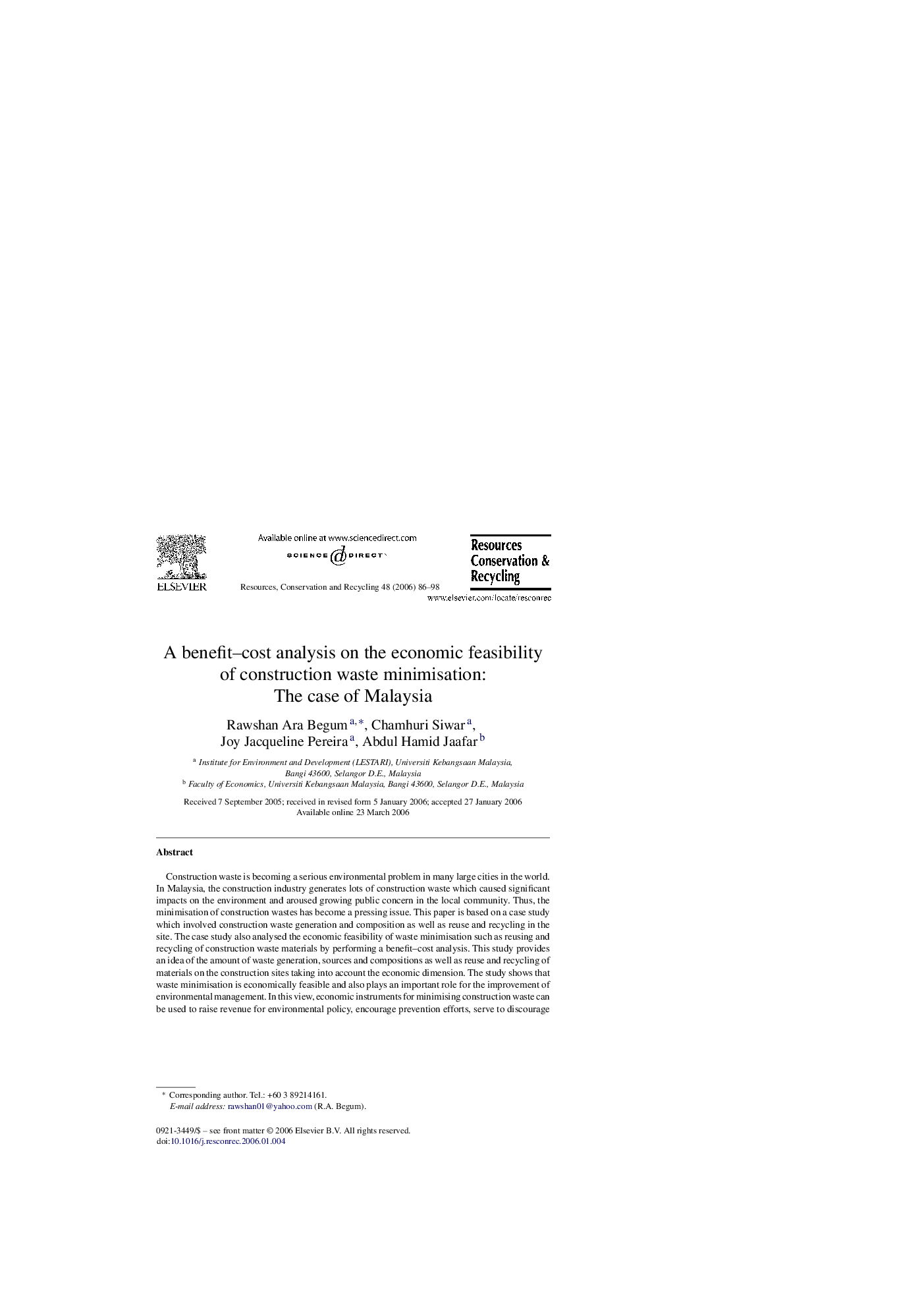| کد مقاله | کد نشریه | سال انتشار | مقاله انگلیسی | نسخه تمام متن |
|---|---|---|---|---|
| 1064205 | 948290 | 2006 | 13 صفحه PDF | دانلود رایگان |

Construction waste is becoming a serious environmental problem in many large cities in the world. In Malaysia, the construction industry generates lots of construction waste which caused significant impacts on the environment and aroused growing public concern in the local community. Thus, the minimisation of construction wastes has become a pressing issue. This paper is based on a case study which involved construction waste generation and composition as well as reuse and recycling in the site. The case study also analysed the economic feasibility of waste minimisation such as reusing and recycling of construction waste materials by performing a benefit–cost analysis. This study provides an idea of the amount of waste generation, sources and compositions as well as reuse and recycling of materials on the construction sites taking into account the economic dimension. The study shows that waste minimisation is economically feasible and also plays an important role for the improvement of environmental management. In this view, economic instruments for minimising construction waste can be used to raise revenue for environmental policy, encourage prevention efforts, serve to discourage the least desirable disposal practices, as well as to avoid the negative consequences of environmental unfriendly treatment and disposal practices of construction waste materials.
Journal: Resources, Conservation and Recycling - Volume 48, Issue 1, July 2006, Pages 86–98